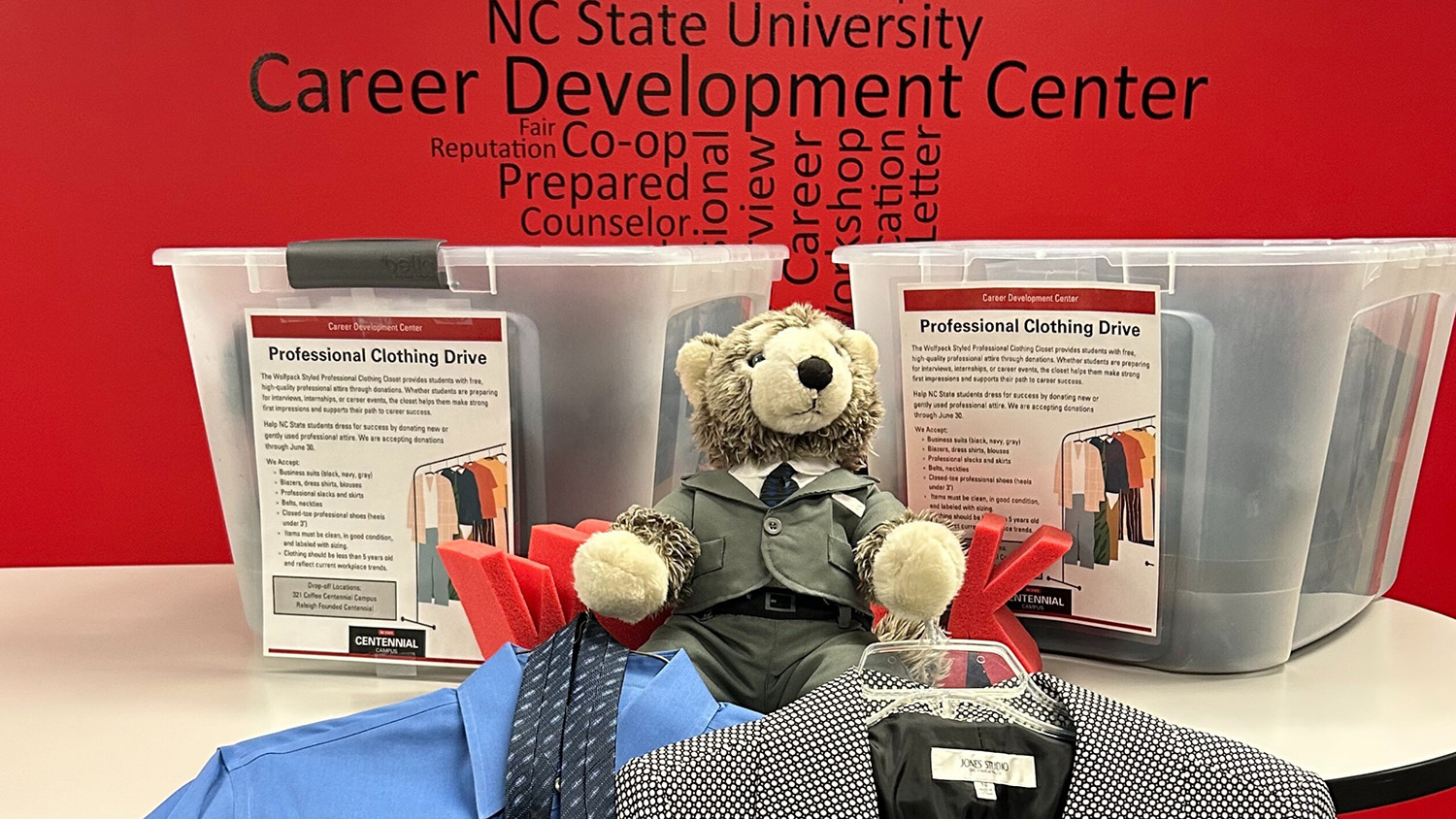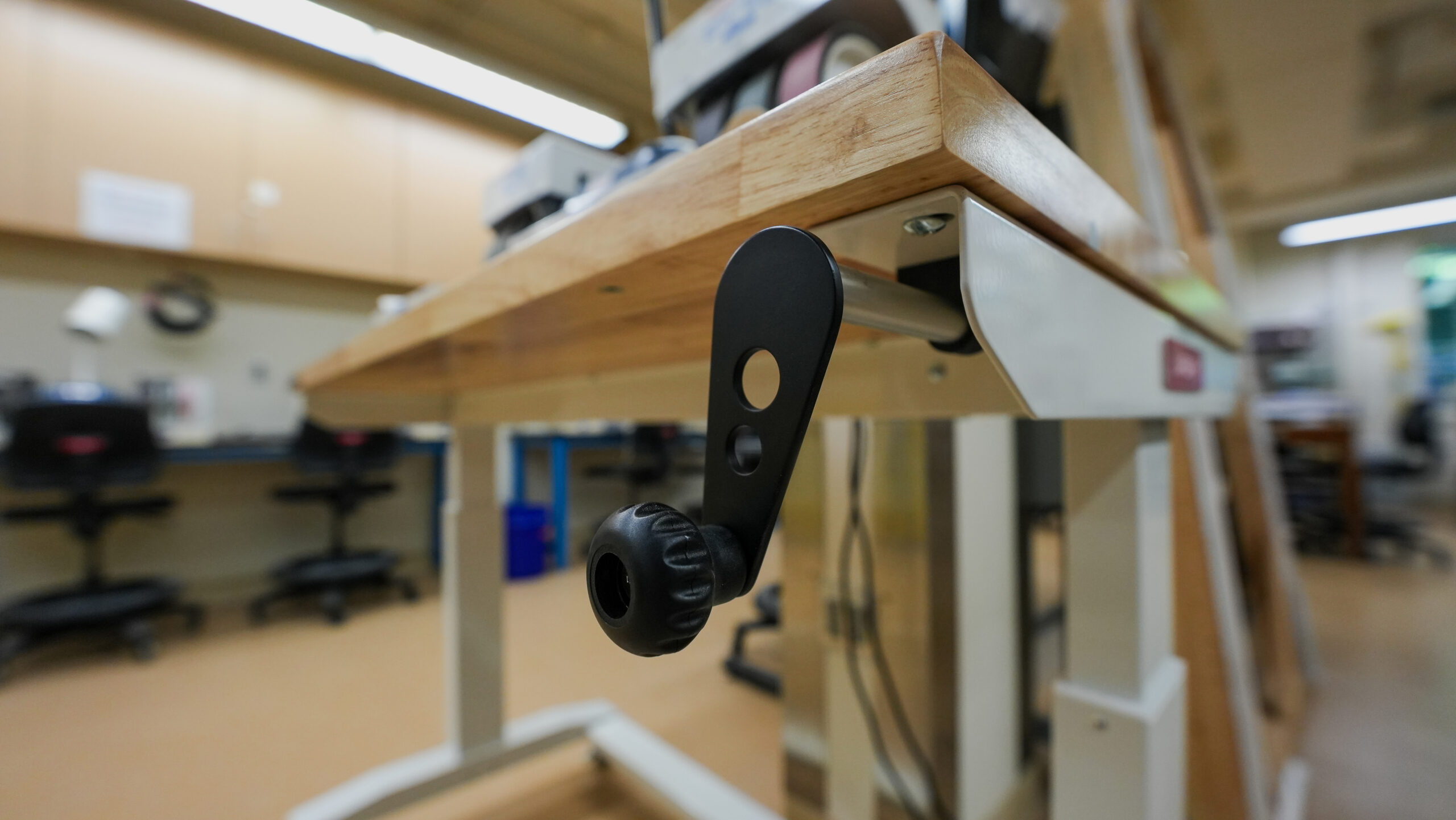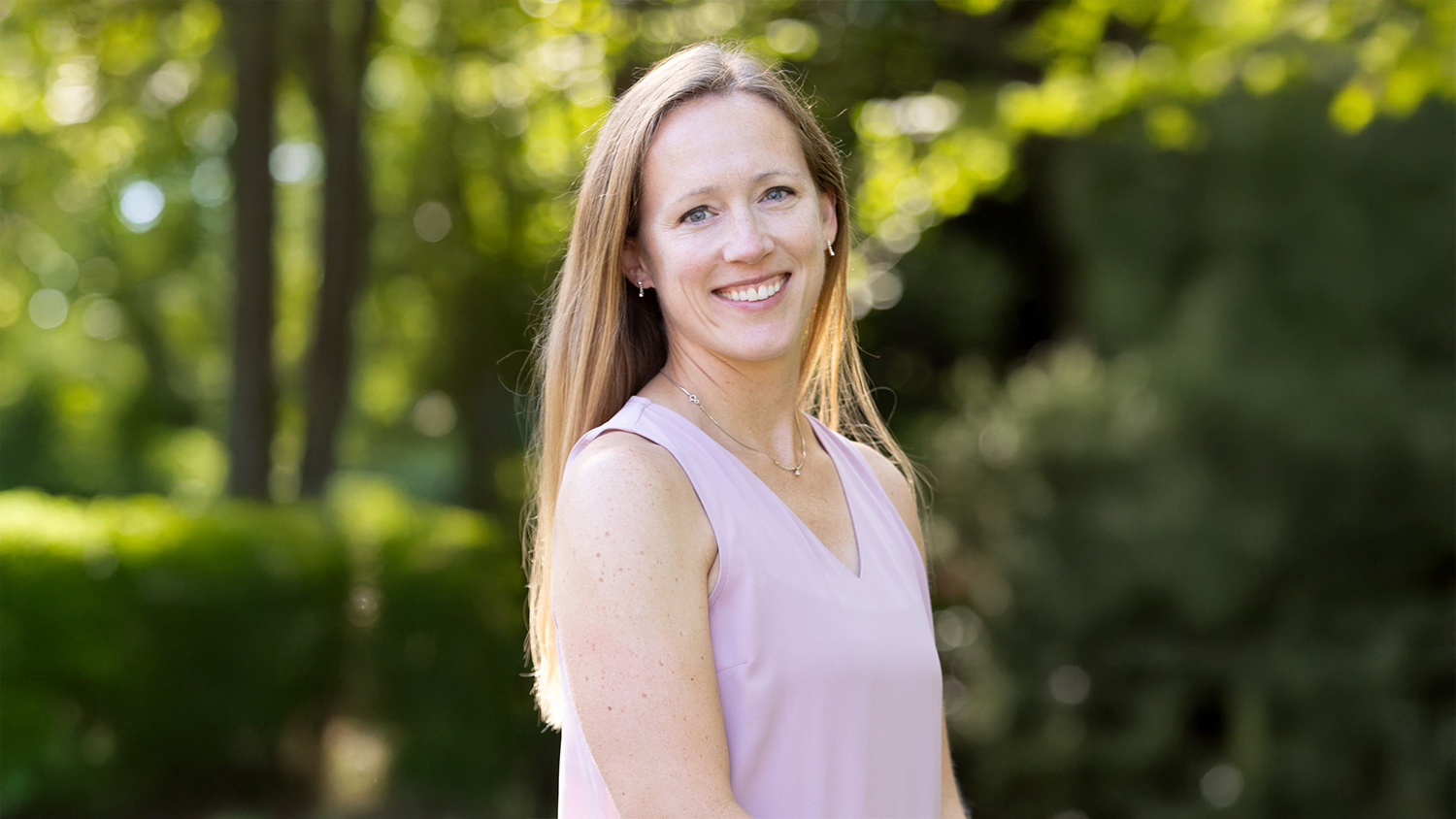The Impact of Mentorship during a Summer Research Experience with Nithin Gupta
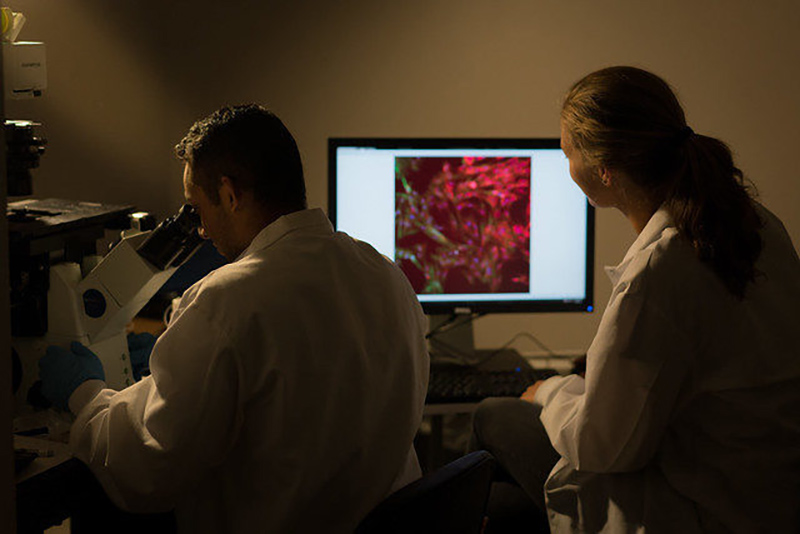
Earlier this summer, Nithin Gupta, a senior majoring in genetics, began working on his summer research project.
It focuses on developing organoids that could revolutionize how we approach dealing with potential side-effects in medical treatments.
Gupta began preparing for his summer research experience last spring while working with the Comparative Medicine Institute (CMI) in the College of Veterinary Medicine (CVM), located on the Centennial Biomedical Campus. There he worked with his mentors, Professor of Translational Medicine and Director of the CMI, Jorge Piedrahita, whose academic home is in the Molecular Biomedical Sciences department of the CVM, and Kathryn Polkoff, a second-year Ph.D. student and graduate research assistant at the CMI.
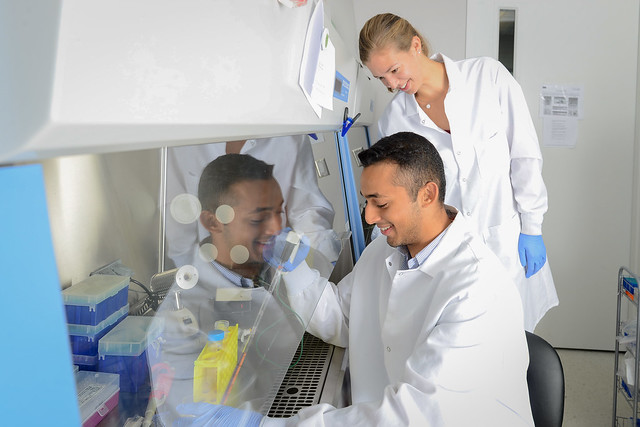
Gupta’s mentors encouraged him to get hands-on experience with writing research proposals and their encouragement led him to submit a proposal to the Office of Undergraduate Research (OUR) for funding. Associate Director of the OUR Annie Carlson Welch noted Gupta’s proposal was one of the strongest she had seen from an undergraduate student.
Recently, Gupta discussed his journey to find and establish a strong working relationship with his mentors. “I sort of applied to the program on a whim. My mom forwarded me the application and said I should apply for it, so I did.”
Once accepted into the program Gupta interviewed with faculty and staff, and was asked what projects he hoped to work on. Gupta’s interest in genetics and translational medicine led him to work with Polkoff and Piedrahita.
“The first thing Dr. Piedrahita said to me was ‘when you walk in here you are a Ph.D. student, you are no longer an undergrad.’”
Gupta admits to being a little intimidated, but decided to rise to the challenge. “Honestly, it was one of the best things to ever happen to me. Without me even realizing it, they taught me so much. Working in the lab has helped me be more independent and strengthen my public speaking and my critical thinking skills.”
Gupta explained Polkoff often encourages him to seek the answers to his questions, rather than directly answering them, which has helped Gupta to better understand the intricacies of his project and enhanced his ability to work through difficult problems.
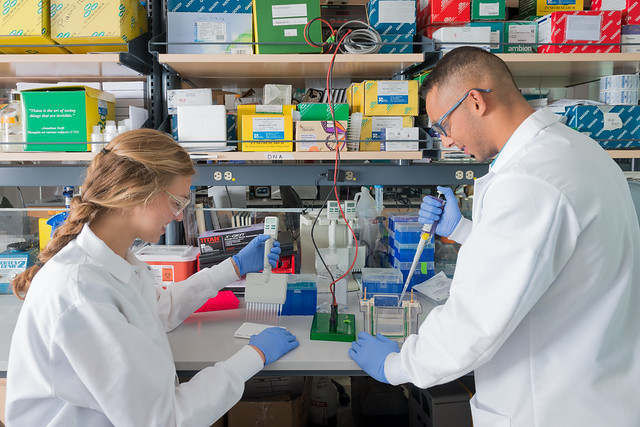
Polkoff, who is currently wrapping up the second year of her doctoral study, began working with Gupta in the summer of 2018 and strives to provide the same level of guidance and support as her mentor, Piedrahita. She explained her approach to mentorship as being collaborative and hands-off.
“For me, the goal of mentoring undergraduate students is to help them get to a point where they are able to take control and be the one driving their project.” For Polkoff, this summer has proven to be the highlight of her mentorship experience. “It’s been a lot of fun, because [Gupta] is at a level where I know he is confident in his work and can help brainstorm and bring good ideas to the table. It’s the best-case scenario because it’s just teamwork now.”
“It’s the best-case scenario because it’s just teamwork now.”
For Piedrahita, teamwork is a vital part of the research and mentorship process. He and his colleagues at the CMI believe this so deeply they now promote mentorship at all levels– such as the Young Scholars Award Program. It proposes collaborative research projects which utilize students, like Gupta, from the Summer Interdisciplinary Research Initiative (SIRI). It was this very program that brought Piedrahita, Polkoff, and Gupta together. “It’s not just a win for the graduate students, it’s a win for the undergraduate student as well because they learn a lot of useful skills they can use throughout their career,” explained Piedrahita, “I think we have something really unique that is working really well.”
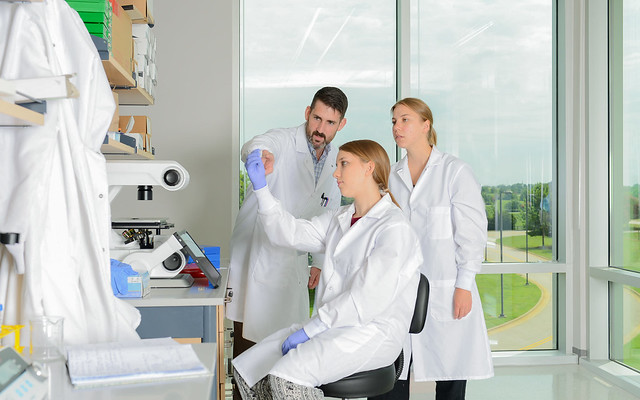
In addition to the teamwork mentality, Piedrahita strives to encourage his students to be confident in their work. “Being in the lab and seeing the confidence they have in their work,” said Gupta, “it sort of rubs off.” Last year, Gupta was able to put all his work and lessons from his mentors to the test, for what the trio all agree was one of the biggest highlights of their time together.
“We missed the deadline for an international research competition’s undergraduate poster session,” explained Gupta, “but Dr. Piedrahita was able to convince the committee to allow me to submit my work for another section of the competition.”
Unfortunately, the new section did not have a category for undergraduate students. This meant Gupta would be in a field against all graduate students, which he noted was a little nerve-wracking.
Against the odds, Gupta took first place.
“He won an international research competition on his first time out,” exclaimed Piedrahita. Gupta noted he and Polkoff worked hard to prepare for the competition, exchanging articles and practicing answering questions about his research to help him feel confident about presenting the information. Piedrahita explained, “by the time [Gupta] got to the competition, he knew the science so deeply. He really impressed the judges with his ability to answer questions and his knowledge of the field. It was not that his poster was better than the others, it was that he was more knowledgeable about his work.”
It was not that his poster was better than the others, it was that he was more knowledgeable about his work.”
Mentorship in undergraduate research can truly be a team effort, as Piedrahita explained: “if you’re willing to put in the time to be a mentor, it can be incredibly rewarding.” The role of a faculty mentor is not one Piedrahita takes lightly, “you can really change the outlook of a student’s career and have a huge impact on them.”
The advice and support of faculty mentors to students throughout the research process is critical to the success of the student and their research endeavors. Director of the OUR Chris Ashwell agrees, explaining the relationship provides a level of support that is not easily found elsewhere. “Being able to interact with a professional in the student’s chosen career area is something an instructor or an advisor or a parent can’t provide.”
Carlson Welch further notes “Our mentors are some of the best resources, advocates, and connectors for our students whether they decide to continue their education in graduate school or go into the workforce.”
For faculty members interested in learning more about mentoring undergraduate research students, please visit the OUR’s Faculty Mentors page.
Photo credit: Brantley Atkinson, Associate Director Communications & Marketing, Enrollment Management & Services
